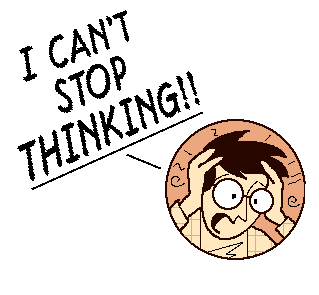Whether Doubt is more Rational than Faith?
Objection 1: It would seem that to reason is to doubt, and is the rational opposite of faith. Descartes says that the essence of man is his reason. He arrives at this conclusion through a process of doubting everything, whittling his reality down to his own doubting thoughts, which he accepts as real because he is, in fact, thinking them. In the cogito, (“I think therefore I am”) he shows that to doubt is the base truth and ability of the human person, which is human reason.
Objection 2: Doubting may be defined as critical thinking which allows the thinker to deconstruct ideas, analyze the parts and their origins, and formulate opinions accordingly. This is also known as the reasoning process.
Objection 3: Doubt is necessary for examined faith. Man continually formulates and reformulates opinions though the process of doubting, i.e. reason, which includes the breaking down (doubting) and rebuilding (faith). Reason as a part of our free will allows us to be aware of and understand on varying levels why we believe and act a certain way. Therefore, it is more rational to doubt because faith is inherently dependent on a person’s ability to doubt that which he has faith in so that he can understand why he possesses the faith to being with.
On the contrary, “Even if faith is superior to reason there can never be a true divergence between faith and reason, since the same God who reveals the mysteries and bestows the gift of faith has also placed in the human spirit the light of reason. This God could not deny himself, nor could the truth ever contradict the truth” (Fides et Ratio chapter. 53. Quote from the First Vatican Council)
I answer that, The clash between doubt and faith can be compared to the “convictions” in Paul Ricoeur’s “hermeneutical detour” : Doubt and faith are two convictions which are navigated and governed through reason. Doubt should not be used synonymously with “reason” because it, as is faith, is merely a mode of reasoning, rather than reason itself; Doubting is not an end in itself. Rather, it must return to faith in some form as its product of reasoning. We formulate opinions through the process of having faith in some things and doubting others. Neither of these two, faith or doubt, is somehow contrary to human nature, nor is one less a part of the human rational being; and if both are part of our nature, than it follows that we should govern them with our reason. It is not possible to live in the state of doubt. Even while doubting, a person must be living positively in some way. For Descartes, his positive state was that he believed his mind (and its history) existed. While doubting is an acclaimed product of the modern, educated mind, and rightly so in the method of self-critique, it is incomplete without the necessary rebuilding of what it has broken down. In addition, it should be mentioned that doubt when it is not subject to the reasonable critique, it too may be as incomplete and unexamined as the faith it breaks down. Doubt which is not subject to the reasoning process, a constant movement back and forth between itself and faith, is simply another occasion of unexamined faith—or perhaps, just apathy. As I have stated above, it is impossible for a person to maintain a stasis of doubt.
Reply to Objection 1: Humans possess innate proclivities toward both doubt and faith, and we use our reason to choose when to doubt and when to have faith.
Reply to Objection 2: The first problem with defining doubt as reason is that it automatically takes faith out of the picture as something that is reasonable unless faith is modified by doubt (there is no faith without doubt.) Likewise, if faith were to be defined as reason, it would alienate doubt as something that is reasonable as well.
Reply to Objection 3: Faith is the product of examined doubt, towards which it is impossible for doubt not to aim. One cannot live in a state of doubt without also living in a state of faith on some level. For example: One who may doubt the existence of God will be likely to simultaneous harbor ardent belief in his own existence.
Diagram of the faith/doubt version of the Hermeneutic Arc:
faith |
| doubt
|
better |
faith |
|
V
REASON

